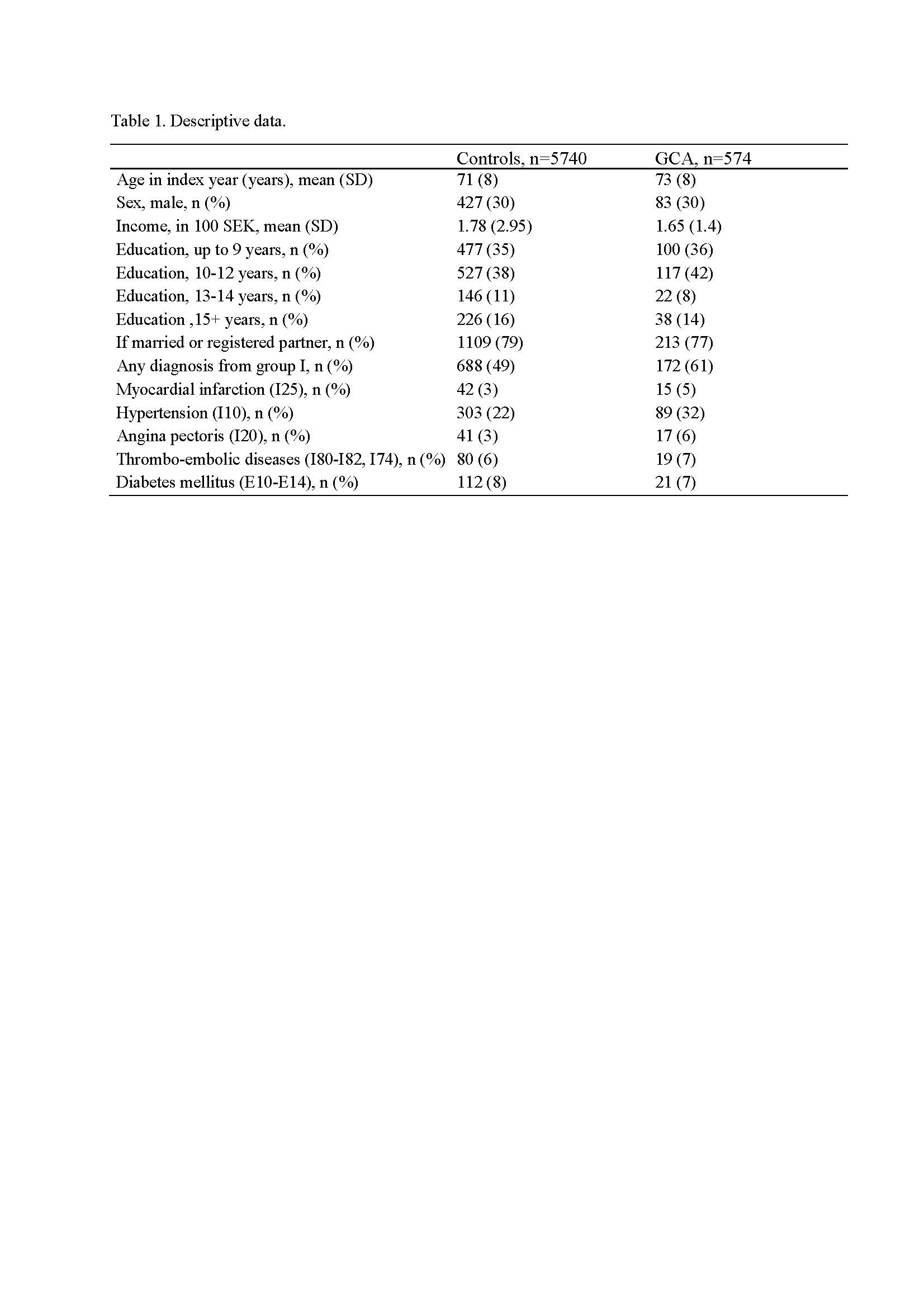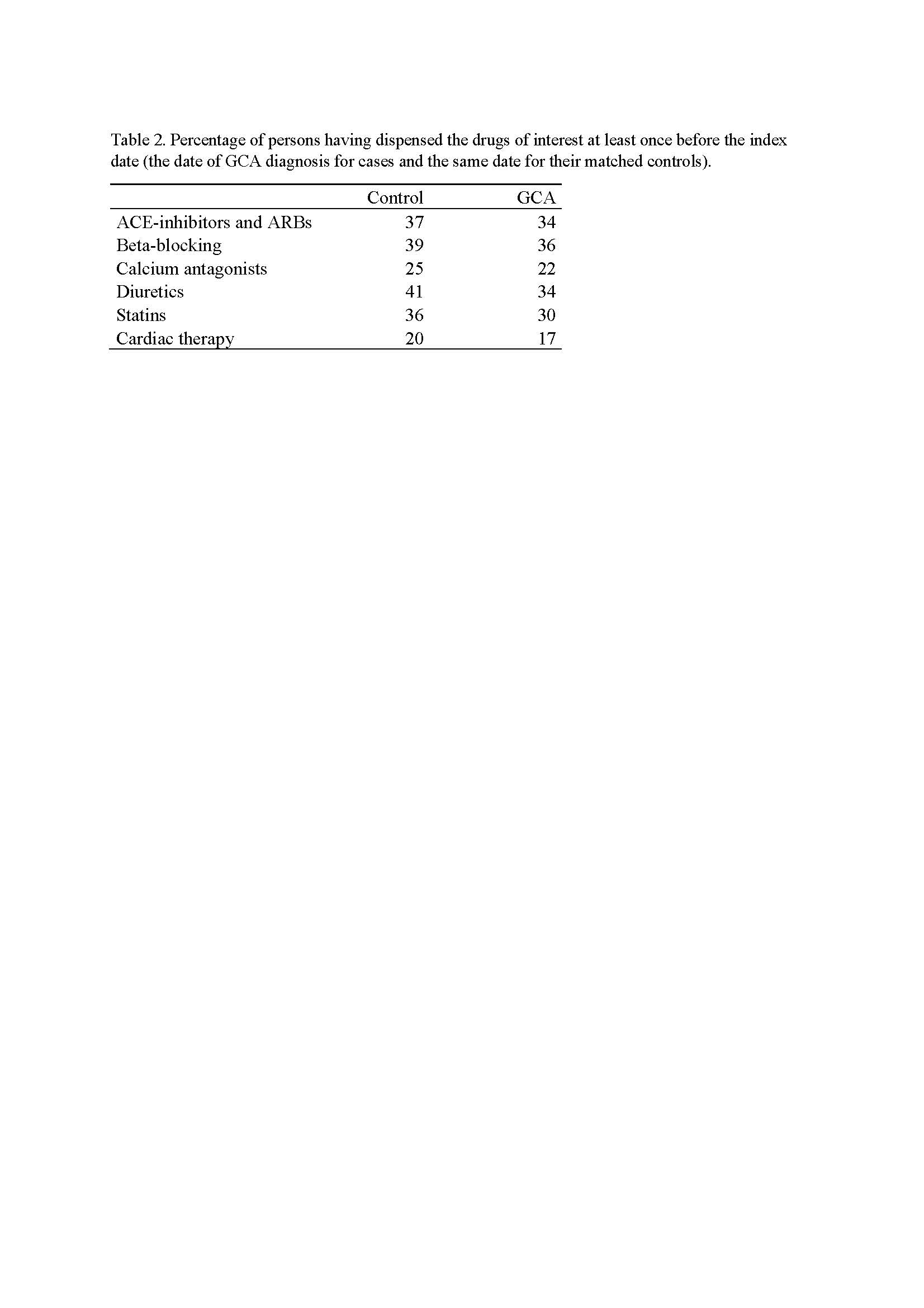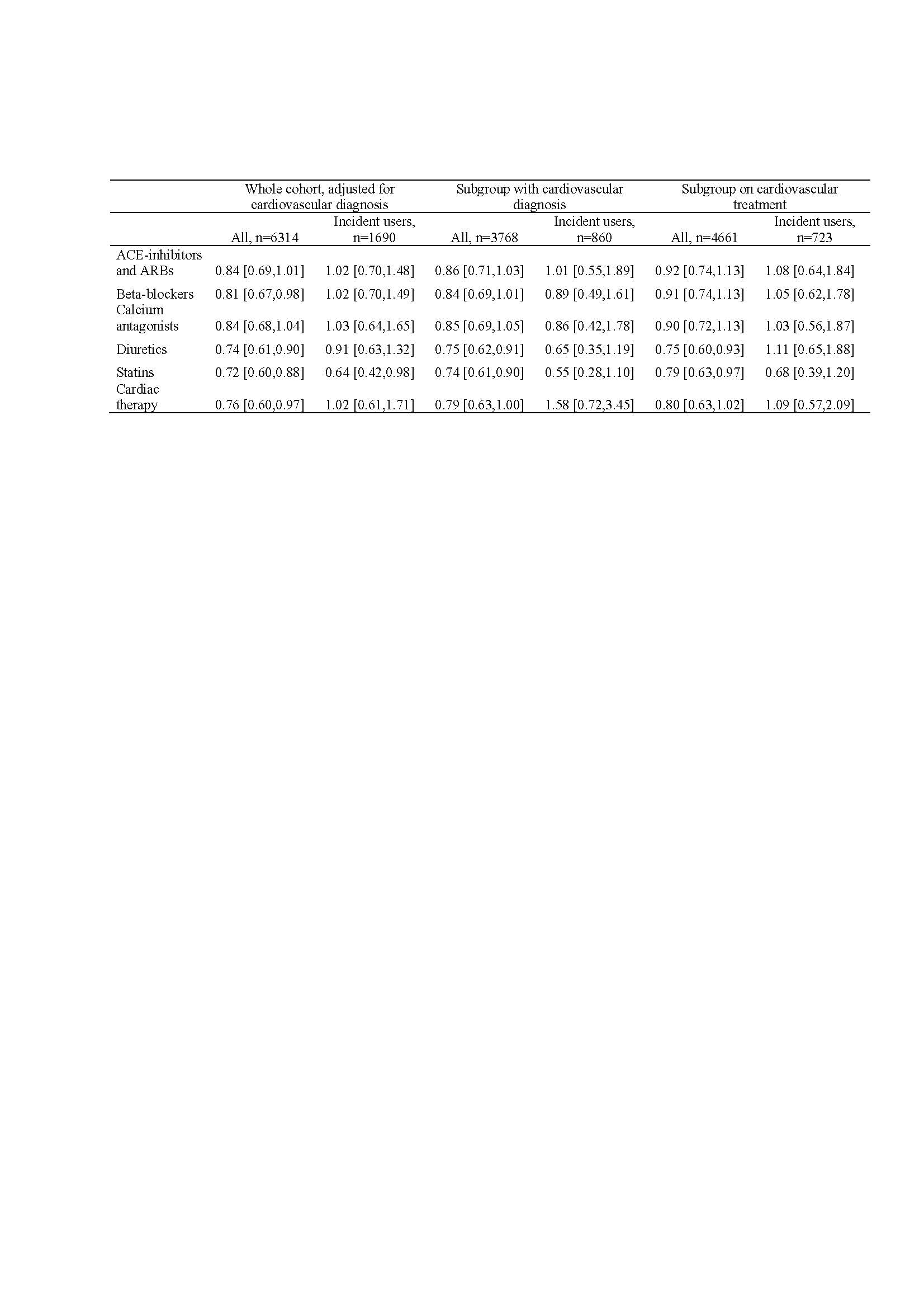Session Information
Date: Tuesday, November 12, 2019
Title: Vasculitis – Non-ANCA-Associated & Related Disorders Poster III: Giant Cell Arteritis
Session Type: Poster Session (Tuesday)
Session Time: 9:00AM-11:00AM
Background/Purpose: The aetiology of giant cell arteritis (GCA) is largely unknown. We aimed to evaluate ACE-inhibitors (ACE-i), angiotensin II receptor blockers (ARBs), beta-blocking agents, calcium antagonists, diuretics or other cardiovascular drugs as risk factors for incident GCA.
Methods: We included 574 biopsy-proven GCA cases diagnosed between Jan 1st2006 and Oct 31st2015 in the Skåne region, Sweden and 5740 controls matched on age, sex and residential area. Using the Swedish Prescribed Drug Register containing all prescribed and dispensed drugs, we identified the GCA cases and controls who had at least one dispensation of the following groups of drugs: ACE-i or ARBs (ATC-code C09), beta-blocking agents (C07), calcium antagonists (C08), diuretics (C03), statins (C10AA) or cardiac therapy (C01) between Jul 1st2005 and the index date (i.e. the date of GCA diagnosis for both cases and their matched controls). To study incidentdrug use, we performed a second analysis, were all persons that dispensed the any of the drugs listed above at least once between July 1st2005 and Jun 30th2006 were excluded. We used conditional logistic regression adjusted for income, education, and marital status and if being diagnosed with cardiovascular diseases (ICD-10 code from group I). The data on cardiovascular diagnoses were retrieved from Skåne Healthcare Register covering the whole population of the region (including primary care) between the year 1998 and the data of the first dispensation of a cardiovascular drug. A separate regression model was fitted for each drug group of interest. To take into account bias by indication we performed two subgroup analyses, one only among those with a cardiovascular disease, second among those on any cardiovascular drug (ATC code C).
Results: The included persons were on average (SD) 75 (8) years old and 29% were male, 70% were diagnosed with a cardiovascular disease (47% with hypertension, Table 1). Of the GCA cases 71% had at least one dispensation of any cardiovascular drug before the index date, compared to 74% among controls (Table 2). Among the persons that dispensed at least one drug of interest, 75% had at least one dispensation of a drug from another group (53% among incident users). The odds ratios for the association between drug exposure and GCA were close to 1 for most drugs. The only drug consistently associated with lower odds of GCA were statins with 12% to 40% lower risk of GCA (Table 3).
Conclusion: After taking into account confounding and bias-by-indication, we found that of the evaluated cardiovascular drugs only statins may be associated with lower risk of incident biopsy-proven GCA.

Table 1_CV drug abstracts_GCA_ACR2019

Table 2_CV drugs_abstract_ACR2019

Table 3_CV drugs_abstract_ACR2019
To cite this abstract in AMA style:
Mohammad A, Stamatis P, Turkiewicz A. Cardiovascular Treatment and the Incidence of Giant Cell Arteritis (GCA) – a Population-Based Case-Control Study [abstract]. Arthritis Rheumatol. 2019; 71 (suppl 10). https://acrabstracts.org/abstract/cardiovascular-treatment-and-the-incidence-of-giant-cell-arteritis-gca-a-population-based-case-control-study/. Accessed .« Back to 2019 ACR/ARP Annual Meeting
ACR Meeting Abstracts - https://acrabstracts.org/abstract/cardiovascular-treatment-and-the-incidence-of-giant-cell-arteritis-gca-a-population-based-case-control-study/
